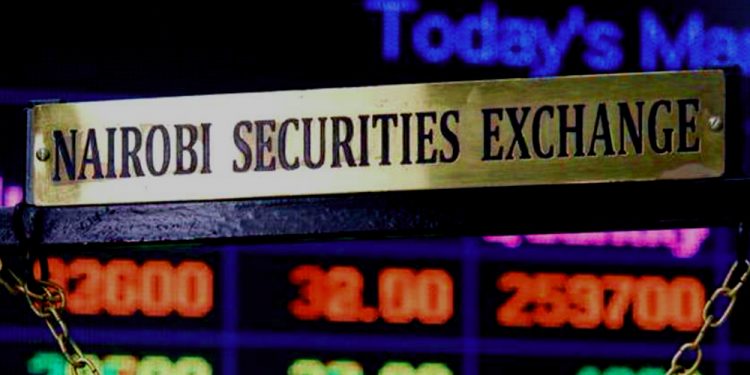The Nairobi Securities Exchange (NSE), a vital component of Kenya’s financial landscape, has undergone a remarkable transformation since its inception, shaping the nation’s economy and offering investors a platform for growth. From its modest beginnings to its current state as a leading stock exchange in East Africa, the NSE’s journey is a testament to Kenya’s economic aspirations and the power of financial markets.
Early Years and Foundation (1954-1980s)
Prior to 1954, securities in Kenya traded over a ‘gentleman’s handshake agreement,’ but upon the establishment of the Nairobi Stock Exchange in 1954, that changed. The NSE was originally established as a voluntary association of stockbrokers and charged with the responsibility of developing the securities market and regulating trading activities. Initially, it served as a modest marketplace for a handful of companies seeking to raise capital through equity listings. The exchange’s operations were manual, and trading was conducted through open outcry on the trading floor.
During this period, the NSE laid the groundwork for its future expansion and the development of Kenya’s capital markets. By 1968, the number of public sector securities on the NSE was 66 as the government was adopting new policies targeted at transferring economic and social control to more Kenyan citizens. At the time, 45% of these listed securities were for the Government of Kenya, 23% for the Government of Tanzania, and 11% for the Government of Uganda. Unfortunately, as political regimes changed among EAC members, many companies domiciled in Uganda and Tanzania delisted from the NSE.
In 1988, the first successful privatization through the NSE took place with the sale of a 20% stake in the government-owned, Kenya Commercial Bank (KCB).
Technological Leap (1990s-2000s)
The dawn of the 1990s marked a significant turning point for the NSE as it embraced technology and regulation to modernize its operations. Automated trading systems were introduced, gradually replacing the traditional open outcry method. This technological leap not only enhanced efficiency but also expanded the exchange’s capacity to accommodate a growing number of listings.
1990 witnessed the creation of the Capital Markets Authority (CMA) with its main purpose as a regulatory authority to promote and facilitate the development of a more orderly and efficient capital market. The CMA made several changes to the market during this period including increasing the initial paid-up capital required for stockbrokers and investment advisors to participate in the exchange. Additionally, over the years, the CMA increased the number of registered stockbrokers operating on the exchange.
In 1994, the NSE 20-Share Index broke record highs, reaching 5,030 points and the International Finance Corporation (IFC) declared the NSE the best performing market globally with a return of 179% in dollar terms.
10 years later in 2004, the central depository system was commissioned, providing a process for the clearing and settlement of shared in an automated way. Later, in 2006, the NSE implemented live trading on its own automated trading system for equities and both corporate & treasury bonds.
Global Integration and Diversification (2010s)
The NSE continued to evolve through the 2010s by diversifying its offerings and strengthening its ties to the global financial community. New products, such as exchange-traded funds (ETFs) and real estate investment trusts (REITs), were introduced, providing investors with innovative opportunities. The NSE also enhanced its regulatory framework to ensure transparency and investor protection.
During this period, the NSE worked closely with FTSE International to launch the FTSE NSE Kenya 15 and FTSE NSE Kenya 25 indices: later on, launching the FTSE NSE Kenyan Shilling Government Bond Index. In 2013, the Growth Enterprises Market Segment (GEMS) was launched to give SME’s the opportunity to access capital markets; later that year, Home Afrika made history as the first company to list on the GEMS.
In the 2010’s, several notable companies made their NSE debuts including Equity Bank, I&M Bank, and the NSE itself. In 2019, the NSE launched its NEXT Derivatives Market becoming only the second exchange on the African continent giving investors the opportunity to trade derivatives such as futures.
Current Landscape (2020s)
As of 2023, the NSE stands as a pivotal institution within Kenya’s financial ecosystem. With over 60 listed companies spanning various sectors, the exchange plays a crucial role in channeling funds to support economic growth and development. The NSE’s embrace of technology is evident in its fully automated trading platform, which has increased efficiency and accessibility for investors.
2021 was a busy year for the NSE with the launch of its Unquoted Securities Platform to provide the trading infrastructure for securities of unlisted companies and the launch of day trading capabilities to help drive market liquidity. Additionally, the exchange’s continual efforts to improve financial literacy and expand investor education have contributed to a more informed investor base.
The NSE’s performance has not been without challenges, as it has faced fluctuations driven by global economic factors, regional instability, and domestic policy changes. However, its ability to adapt to these challenges underscores its resilience and commitment to fostering a vibrant capital market in Kenya.
Future
The Nairobi Securities Exchange’s journey from a nascent marketplace to a modern and diversified exchange reflects the ambitions of a nation striving for economic growth and development. Looking ahead, the NSE is poised to play an even more substantial role as Kenya positions itself as a Pan-African economic hub. By continuing to innovate, adapt to changing market dynamics, and prioritize investor confidence, the NSE is poised to play an ever-increasing role in Kenya’s economy.









